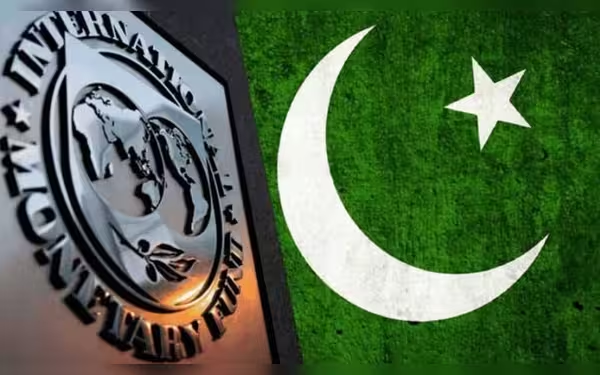Sunday, December 22, 2024 07:09 AM
Pakistan's IMF Deal Fails to Attract Foreign Loans
- Pakistan received only $2.7 billion in foreign loans.
- Decline in loans raises concerns about economic recovery.
- Government must address economic issues for foreign confidence.
 Image Credits: tribune.com.pk
Image Credits: tribune.com.pkPakistan's recent IMF deal has not boosted foreign loans, raising concerns about economic recovery and investor confidence.
The International Monetary Fund (IMF) has been a crucial player in stabilizing economies around the world, and Pakistan is no exception. Recently, the country secured a bailout package from the IMF, which was expected to boost foreign loans and restore confidence among international creditors. However, the latest statistics reveal a different story. In the first four months of the current fiscal year, Pakistan received only $2.7 billion in foreign loans, a staggering decline of more than half compared to previous periods.
According to the Ministry of Economic Affairs, the official disbursement data for the July-October period of fiscal year 2024-25 indicates that foreign financing has not yet picked up pace. This situation raises concerns about the effectiveness of the IMF deal in attracting foreign investment and loans. The decline in foreign loans is particularly alarming as it suggests that creditors remain skeptical about Pakistan's economic recovery and stability.
One of the primary reasons for this lack of confidence could be the ongoing economic challenges that Pakistan faces. High inflation rates, a depreciating currency, and political instability have created an environment of uncertainty. Foreign creditors are likely waiting to see tangible improvements in the country’s economic indicators before committing their funds. The IMF deal, while a step in the right direction, has not yet translated into the expected influx of foreign capital.
Moreover, the global economic landscape is also a factor. With many countries grappling with their own financial issues, foreign lenders may be more cautious in their lending practices. This caution can lead to a slower recovery for Pakistan, as the country relies heavily on external financing to support its budget and development projects.
While the IMF bailout package is a significant milestone for Pakistan, it has not yet succeeded in boosting foreign loans as anticipated. The government must work diligently to address the underlying economic issues and restore confidence among international creditors. Only then can Pakistan hope to see an increase in foreign financing, which is essential for its economic growth and stability. The road ahead may be challenging, but with the right strategies and reforms, there is still hope for a brighter economic future.













